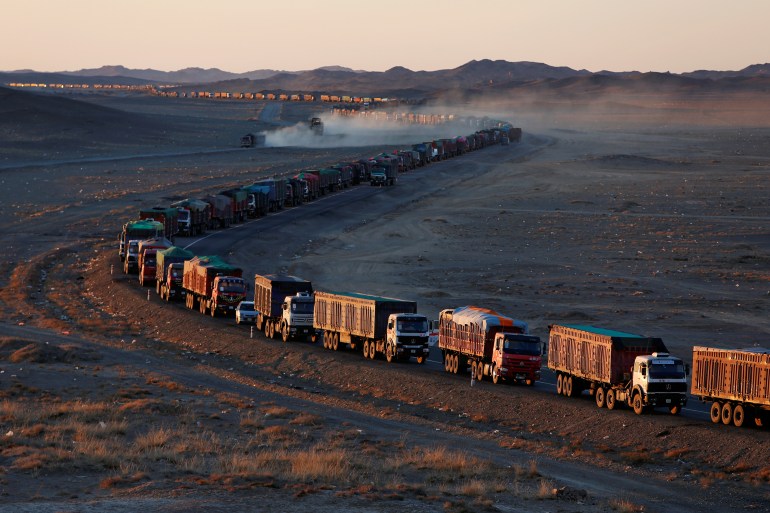The Chinese government will now have to pay more in order to purchase coal from Mongolia. The East Asian country has decided to stop selling its coal directly to Beijing, instead selling it through auctions.
Since China is about to lose its biggest coal supplier, the horror of last year’s power shortage re-emerges in the country. The Mongolian government also emphasised that it will use the border to sell its coal. The new price will incorporate the transportation cost between the coal mines and borders.
Mongolia’s call follows widespread protests in the country last year against deep-rooted corruption in the coal industry.
Read more: Why does Zelensky want to meet China’s Jinping?

Earlier, the state-owned China Energy Investment Corp had placed an order to import coal from Australia, which is regarded as the world’s second-largest exporter of coal after Indonesia. However, since October 2020, China has banned coal imports from Australia in the wake of the Australian government’s call for a probe into the origins of Covid-19 outbreaks in Wuhan.
China experienced an unprecedented power crisis in September 2021. Power plants in the nation cut their output in the wake of a skyrocketing increase in regional coal prices. They argued that they were not able to earn any profits under the framework of Beijing’s electricity price cap.
Xi Jinping’s regime then created a task force to solve the issue. In addition to ordering coal mines in Shanxi province and the Inner Mongolia region to expand their output, the Chinese government also imported coal from Mongolia and Russia.

Later on, Mongolia replaced Australia as China’s biggest coal supplier in 2021. In 2022, Beijing imported 63.83 million tons of coal from Mongolia, which is equivalent to 40% of its supply. This was followed by Russia (33%) and Canada (12%). However, following severe public outcry in Mongolia last year against the misappropriation of funds from Erdenes-Tavantolgoi JSC, the nation’s biggest state-owned coal miner, by legislators and government officials, Khürelsükh’s regime has decided that Erdenes-tavantolgoi will suspend signing any sales contracts with buyers in China.
Read more: China comes up with a bizarre idea to overcome demographic challenges
Mongolia’s decision will have adverse consequences on China, bringing into focus last year’s unprecedented power shortage in the nation. Beijing suffered its most severe energy crisis in decades in 2022 when more than half of its 31 provincial-level jurisdictions were forced to impose electricity rationing. President Xi Jinping vowed that his government will never allow such a grave episode like this to repeat again.
But the decision of the Mongolian government will have significant implications for the power sector of China since the East Asian country was its biggest supplier and it also banned imports from Australia. Therefore, China will have to incur huge costs or look for alternatives to avert a repeat of the coal crisis which struck last year.








